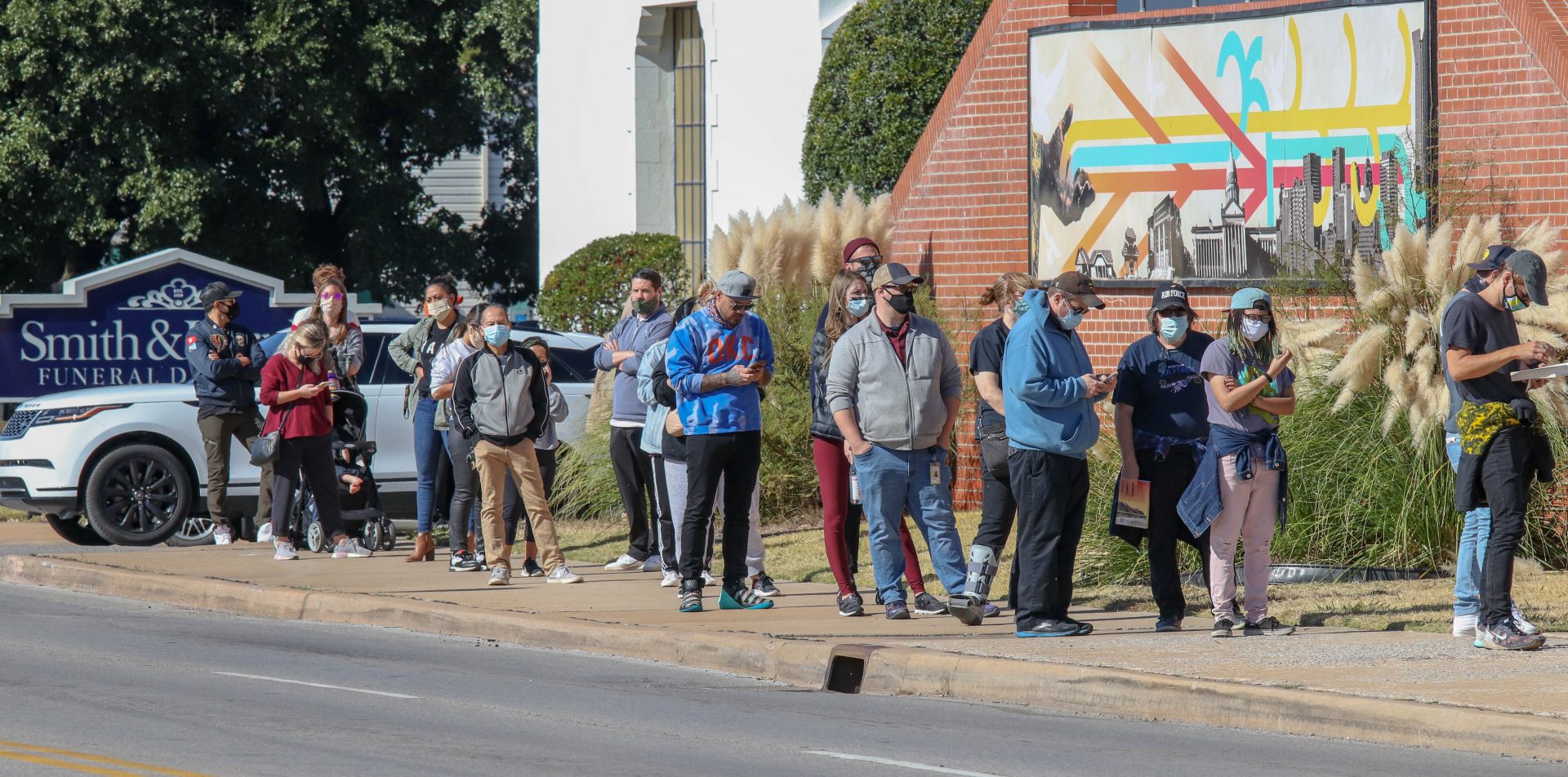
Voters line up to cast their ballots inside Trinity Baptist Church in Oklahoma City.
Quinton Chandler / StateImpact Oklahoma


Voters line up to cast their ballots inside Trinity Baptist Church in Oklahoma City.
Quinton Chandler / StateImpact Oklahoma

Quinton Chandler / StateImpact Oklahoma
Voters line up to cast their ballots inside Trinity Baptist Church in Oklahoma City.
State Question 805 failed in a landslide on Election Day. The ballot question called for a constitutional amendment to end sentence enhancements for people convicted of only nonviolent crimes.
That means State Question 805 would have forced courts to stop increasing the maximum allowable prison sentence for defendants who have been convicted of a nonviolent felony in the past and are then found guilty of at least one more.
It also would have allowed people already convicted and given sentence enhancements to apply for a sentence modification.
On Halloween, Sooner Poll suggested a plurality of voters supported the core policy behind State Question 805. But a significant minority of voters polled were against the question and about 20% of voters were undecided.
On Election Day 905,497 Oklahomans voted against the question – making up 60.97% of voters who voiced their opinions on the issue. Slightly more than 39% of voters cast ‘yes’ votes.
Kris Steele, the executive director of Oklahomans for Criminal Justice Reform, and a representative of the Yes on 805 coalition, says they’re going back to the drawing board.
“And make sure that we have a strategy that hopefully will resonate with the Legislature and the people of Oklahoma,” Steele said.
Steele says Oklahoma’s incarceration rates are still far too high and no single policy will be the silver bullet to bring the state’s incarceration rates under control.
Opponents to the question have said it would have put crime victims in more danger and rewarded people convicted of serious felonies not listed under state law’s violent crime list. They also disliked that the constitutional change would have required another decision from voters to make future changes.
Supporters estimated the question could have reduced the state’s prison population by 8.5% in 10 years and saved the state at least $142 million in that time.